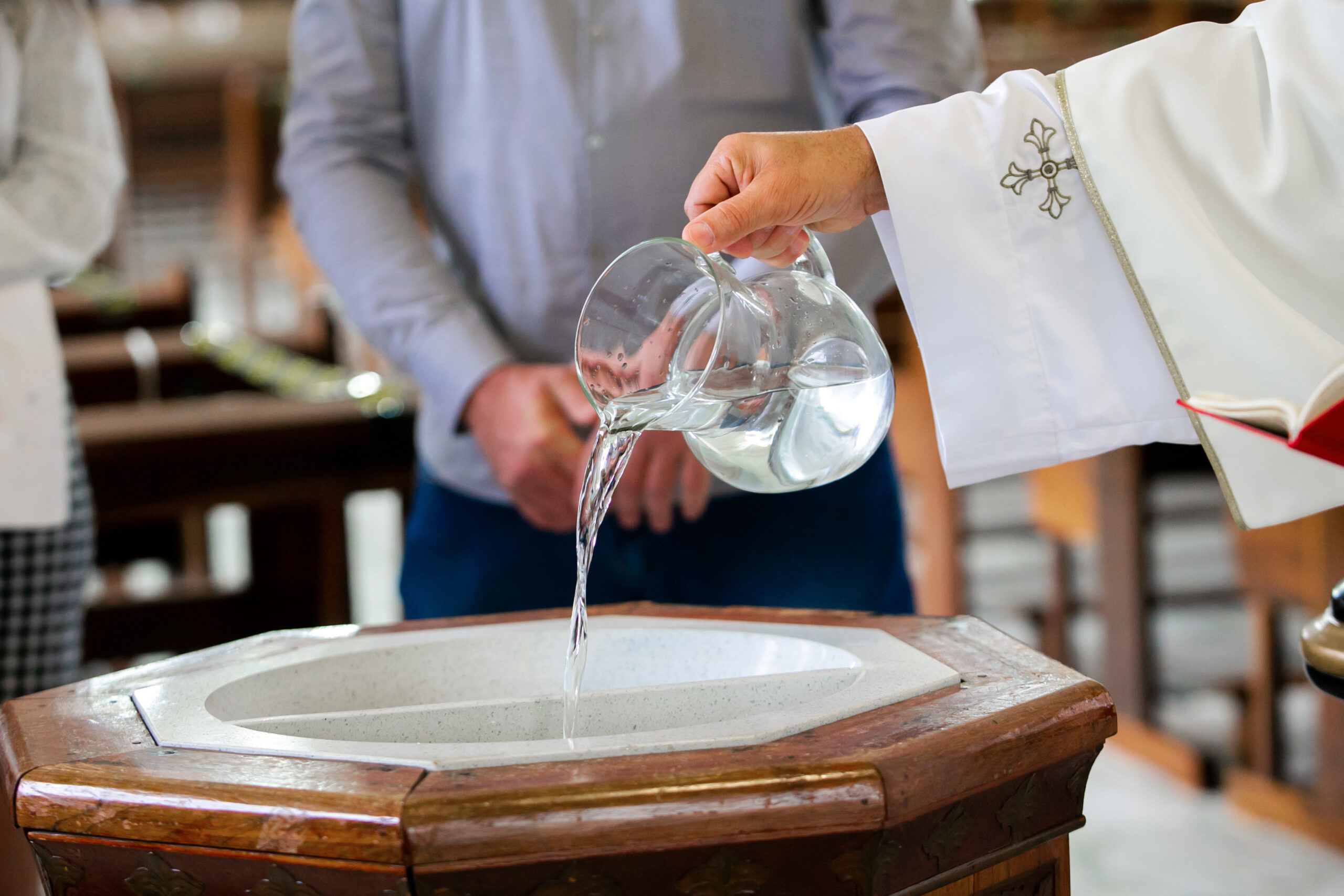“What is to prevent my being baptized?” (Acts 8:36). A poignant question, resonating with a yearning for acceptance, echoes across time from the lips of an Ethiopian eunuch. His question became a focal point as I read (and re-read) the recent document concerning transgender people and baptism from the Dicastery for the Doctrine of the Faith.
I’m embarrassed to admit that my initial reaction to the Vatican document was one of frustration. The affirmation of baptism for trans people was welcome news, but I read it with an emptiness next to the caution of potential scandal and confusion that may arise, simply for transgender people existing as they are. Not to mention, transgender Catholics are already being baptized, serving as godparents and participating in various ministries within the church. Why is there suddenly a need for permission?
As I unpacked these emotions, I realized that my frustration was, in part, due to my point of view as a U.S. Catholic, coupled with my own church trauma—a lens that prevented me from engaging with the Spirit. Once I lowered my defenses, the Spirit broke down the barriers and led me to a full appreciation of the historic document.
The Spirit broke down the barriers and led me to a full appreciation of the historic document.
The Dicastery does not merely offer guidance, but it recognizes a reality that has long been overlooked. It acknowledges that transgender Catholics are already present and active within the church, challenging preconceived notions of faithfulness.
Delving deeper into the document, I couldn’t help but draw parallels with the story of the Ethiopian man and Philip the Apostle. Here was an individual, a eunuch, who traveled to Jerusalem to worship. The Spirit led Philip to him, and as they discussed Scripture, the eunuch queried whether anything would restrict him from being baptized. Philip observed his faith, brought him to the water and baptized him.
Both the biblical narrative and the Vatican document share a common thread—an acknowledgment of the desire for inclusion. The Ethiopian eunuch’s question echoes the silent wondering of many transgender individuals: What barriers exist that might prevent them from fully participating in the sacraments and life of the church?
Both the biblical narrative and the Vatican document share a common thread—an acknowledgment of the desire for inclusion.
While the document doesn’t provide a definitive answer, it does lay the groundwork for ongoing conversations. Pastoral prudence and consideration opens a door for advocacy and dialogue. However, the impact of the document is contingent on the willingness of individual parishes and communities to embrace these discussions. The nuances of this document may not resonate in all corners of the church, and the lived experiences of trans Catholics may still be met with resistance.
Yet, there’s hope in acknowledging the incremental progress reflected in this document. Affirmation of transgender inclusion and participation is monumental in itself, given the transphobia in recent years. It’s a step forward, but not the final destination.
The document also places a responsibility on the laity. It calls us to actively contribute to the ongoing dialogue, to be the bridge between church hierarchy and the lived experiences of trans individuals. This is not a passive role but an active mission, a call to create a stronger, more just and more synodal church.
In this call to action, I find resonance with the story of Philip and the Ethiopian eunuch. Philip didn’t merely answer the eunuch’s question—he engaged in a dialogue, shared the message of Jesus and facilitated the eunuch’s baptism. It was a collaborative effort, a partnership in faith.
We, the laity, must fulfill our role as active participants in the church’s mission.
Reflecting on this document, we must recognize that words can only do so much. They provide a framework, but the real work lies in our hands. We, the laity, must fulfill our role as active participants in the church’s mission. We need to engage in conversations, challenge assumptions and work towards creating a church that embraces all its people.
My hope, strengthened by the Vatican document, is that when transgender people seek faith, they encounter disciples like Philip, and happily ask, “What is to prevent my being baptized?”



